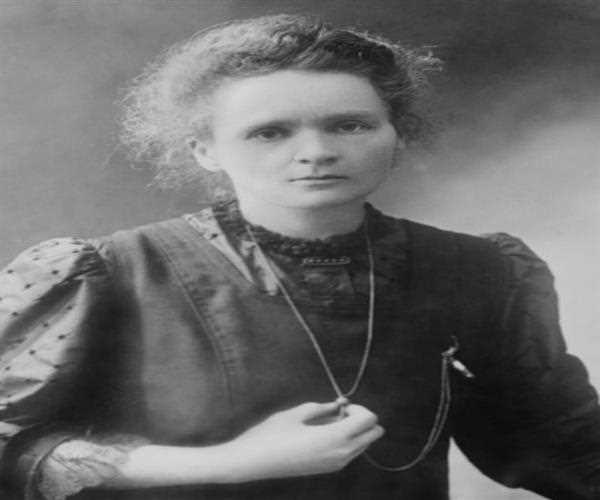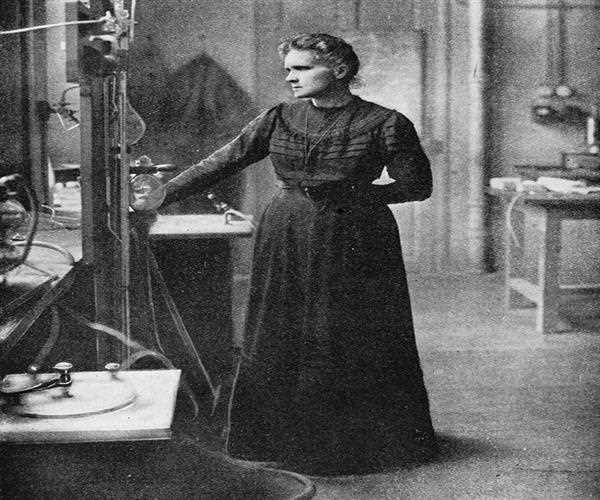
05-Jul-2023 , Updated on 7/5/2023 6:17:57 AM
Marie Curie: A Woman Scientist Who Changed the Perception of Science
Highlights
-Marie Curie was a Polish-born physicist and chemist who became one of the most renowned scientists of all time.
-She was born Maria Skłodowska in Warsaw, Poland in 1867 and later adopted the French name Marie Curie after moving to France.
-Curie is best known for her pioneering research on radioactivity, which she conducted alongside her husband Pierre Curie.
-Together, Marie and Pierre Curie discovered two highly radioactive elements: polonium and radium.
-Marie Curie was the first woman to win a Nobel Prize, and she remains the only person to have received Nobel Prizes in two different scientific fields.
-She won the Nobel Prize in Physics in 1903, jointly with Pierre Curie and Antoine Henri Becquerel, for their work on radioactivity.
-In 1911, Marie Curie won her second Nobel Prize, this time in Chemistry, in recognition of her discovery of radium and polonium.

In the realm of scientific breakthroughs and remarkable discoveries, one name stands out as a beacon of inspiration and accomplishment: Marie Curie. A pioneering physicist and chemist, Marie Curie's contributions to the fields of radioactivity and nuclear physics not only revolutionized science but also shattered gender barriers. Her unwavering dedication, relentless pursuit of knowledge, and indomitable spirit made her a trailblazer for women in science, changing the perception of what women could achieve in the scientific community.
This view explores the life and achievements of Marie Curie and the significant impact she had on the world of science.
Early Life and Education
Marie Curie, born Maria Salomea Sklodowska on November 7, 1867, in Warsaw, Poland, was the youngest of five children in a modest family. Despite facing numerous hardships, including the loss of her mother and sister, Marie Curie displayed exceptional intelligence and a thirst for knowledge from a young age. Her father, recognizing her potential, encouraged her education, and she excelled in academics, graduating at the top of her class.
However, in 1891, Marie Curie's dreams of pursuing higher education were stifled due to Poland's discriminatory laws that prohibited women from attending university. Undeterred, she made the audacious decision to move to Paris, where she enrolled at the Sorbonne University, a renowned institution that admitted women. With limited financial resources, Marie Curie lived a frugal life, often going without food to afford her education.
Scientific Breakthroughs and Research
Marie Curie's groundbreaking work in the field of radioactivity propelled her to the forefront of scientific research. In collaboration with her husband, Pierre Curie, whom she married in 1895, Marie Curie embarked on a path that would revolutionize science. Together, they discovered two new elements: polonium, named after Marie's home country, and radium.
In 1903, Marie Curie became the first woman to win a Nobel Prize, sharing the prestigious award in Physics with Pierre Curie and Henri Becquerel for their research on radioactivity. Undeterred by the challenges faced by women in science, she continued her groundbreaking research, leading to her second Nobel Prize, this time in Chemistry, in 1911. Marie Curie became the first person, male or female, to win Nobel Prizes in multiple scientific fields.
Her discoveries fundamentally changed the scientific landscape and laid the foundation for modern physics and chemistry. The concept of radioactivity, which Marie Curie pioneered, led to significant advancements in various scientific disciplines, including medicine, energy, and nuclear physics.
Impact and Legacy
Marie Curie's achievements not only impacted the scientific community but also challenged societal norms and perceptions of women in science. By breaking through gender barriers and excelling in a male-dominated field, she served as an inspiration to countless aspiring women scientists. Her tenacity and perseverance in the face of adversity became a symbol of empowerment and paved the way for future generations of female scientists.
Furthermore, Marie Curie's dedication to her work and her unwavering commitment to scientific excellence set a standard for scientific rigor and ethics. She devoted her life to advancing knowledge and made immense contributions to the scientific community. Her legacy continues to inspire scientists worldwide, and her influence can be seen in the countless women who have followed in her footsteps.
Challenges and Recognition
Marie Curie faced numerous challenges throughout her career, primarily due to her gender. Despite her groundbreaking discoveries, she often encountered prejudice and skepticism from male colleagues who questioned her abilities and belittled her accomplishments. However, she persevered, refusing to let societal biases deter her from her pursuit of scientific excellence.
Marie Curie's impact was recognized not only through her Nobel Prizes but also through the numerous accolades and honors bestowed upon her. She became the first female professor at the University of Paris, and in 1922, she was appointed as the director of the Radium Institute, becoming the first female director of a scientific research institution. Her accomplishments earned her the respect and admiration of the scientific community, and she remains an iconic figure in the history of science.
Marie Curie's pioneering spirit, remarkable intellect, and unwavering determination shattered gender barriers and transformed the perception of women in science. Her groundbreaking discoveries in radioactivity and her relentless pursuit of knowledge laid the foundation for modern physics and chemistry. Moreover, her legacy as a trailblazer continues to inspire future generations of women scientists to pursue their passions and challenge the status quo. Marie Curie's life and achievements serve as a testament to the indomitable human spirit and the limitless possibilities that await those who dare to dream and push the boundaries of knowledge.
Marie Curie's impact extends far beyond her scientific achievements. Her story serves as a reminder that talent and brilliance know no gender boundaries. Despite the discrimination she faced, she refused to be deterred, displaying exceptional resilience and determination in the pursuit of her passion for science.
Marie Curie's contributions to the field of science have had a lasting impact on society. Her discoveries in radioactivity have played a crucial role in various scientific applications. For instance, her research on radium paved the way for the development of radiation therapy, revolutionizing cancer treatment. Today, millions of lives have been saved and improved through the use of radiation in medical diagnosis and therapy, all thanks to Marie Curie's groundbreaking work.
Furthermore, Marie Curie's influence on women in science cannot be overstated. In an era when women's contributions to the scientific community were often dismissed or ignored, she defied societal norms and shattered glass ceilings. Her achievements opened doors for countless women who followed in her footsteps, proving that women were just as capable of making significant contributions to the world of science.
Marie Curie stands as an iconic figure who changed the perception of science, shattered gender barriers, and made groundbreaking discoveries that continue to shape our world. Her determination, brilliance, and unwavering commitment to scientific excellence have left an indelible mark on the scientific community. Through her remarkable achievements, Marie Curie has inspired generations of scientists, both male and female, and her legacy continues to illuminate the path for future discoveries and advancements in the world of science.

Student
Economics can be broken down into microeconomics, which looks at individual decisions, and macroeconomics, which is concerned with the economy as a whole. Both types of economics utilize historical trends and current conditions to inform business decision-making and make predictions about how markets might behave in the future. Students who choose to study economics not only gain the skills needed to understand complex markets but come away with strong analytical and problem-solving skills.
Join Our Newsletter
Subscribe to our newsletter to receive emails about new views posts, releases and updates.
Copyright 2010 - 2026 MindStick Software Pvt. Ltd. All Rights Reserved Privacy Policy | Terms & Conditions | Cookie Policy